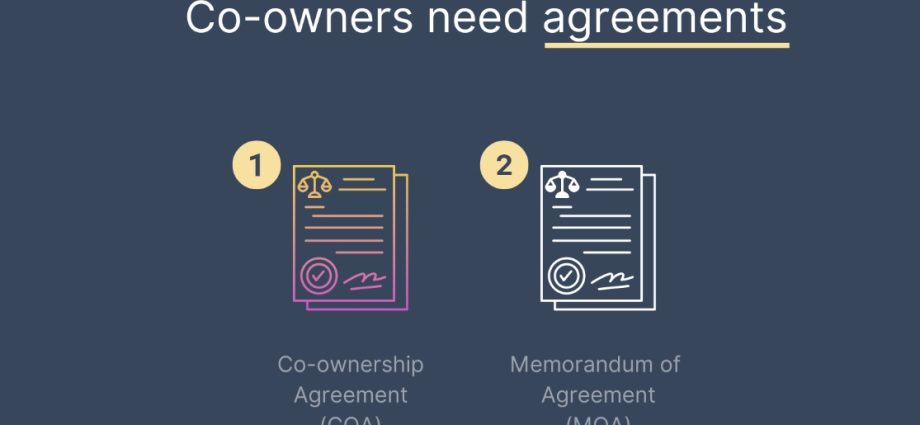Co-owning Florida property can function perfectly—until it doesn’t. Whether you purchased a house with a companion, inherited property with your siblings, or sunk money in real estate with friends, things can alter over time. People move; relationships change; viewpoints on what to do with the property can become rather varied.
Too often, individuals enter shared ownership without first stating what would occur if they later disagree. That’s when fighting starts to boil. And sadly, when those problems get worse, one or more entities might start a partition action in Florida to compel a sale or division of the property.
The excellent news: Many of these issues can be completely prevented by having the appropriate contracts in hand beginning.
What exactly is a co-ownership agreement?
Legal paper known as a co-ownership agreement details each property owner’s rights and obligations. It addresses important issues including who pays for what, how decisions are made, and maybe most crucially what to do if someone wants out.
Regard it as a blueprint. If everyone is getting along, you might never need to examine it again. Should, however, circumstances turn bad, it serves as a lifeline. A well-written contract is a wise investment next to the expense and stress of a partition action Florida litigation.
Going to court could be the only legal recourse one has without this kind of agreement; the court doesn’t care who spent more or who spent weekends fixing the plumbing. They review the wording of the deed and use Florida law, which could lead to an undesired result.
Co-ownership becomes confrontational
The truth is that conditions change along with people. One co-owner would wish to leave and sell; another would want to retain the land. One individual might stop paying toward costs. Another could bring in a tenant without asking. Over time, arguments may develop from any of Over time, arguments may develop from any of these scenarios, which can lead to litigation.
Under Florida law, any co-owner no matter how little their stake has the right to ask a court to split or sell the property by means of what’s known as a Florida partition action. That implies that the process could be started even by someone who owns just 10%, which could eventually cause the whole property to be sold.
Should this occur, you might have little influence on the result. The property might be sold at a judicial auction, with the proceeds divided according to ownership interest. Not always fair. Furthermore, rarely effective it is.
Avoiding Problems Before They Start
The ideal time to draft a co-ownership agreement is before the property is bought. But even if you now own the property jointly, it’s not too late.
Following questions should be answered in a solid co-ownership agreement:
What would happen if one side wished to sell and the other did not?
What sorts of payments are split among taxes, insurance, and repairs?
Whom is able to rent the house or live here?
How will significant choices including refinancing or selling be arrived at?
Should there be a disagreement, will the parties first attempt mediation?
What kind of exit plan?
Dealing with these issues early on greatly lowers your chances of misinterpretations later. Knowing there’s a plan also helps everyone to be at ease. Future need for a Florida partition lawsuit might be avoided with this kind of clarity.
Though you cannot foresee the future, you may prepare for it.
Many people avoid these chats since they find uncomfortable or unnecessary. Having clear conditions, nevertheless, protects everyone involved. Giving real estate without an agreement would be akin not starting a company without one.
Let’s face it, life is unpredictable. Money, distance, or shifting priorities can test even the most intimate relationships. Having something in black and white helps everyone to follow a straight, fair path and prevents emotions from taking over.
If there is conflict without it, you might have to file a partition lawsuit Florida to get a compromise. At that point, too, everything could already be stressed beyond repair.
Move Forward from the Difficulty. Rocky Rinker Could Assist.
If you now co-own property or plan to, act now rather than waiting for argument. One of the most intelligent strategies to safeguard your investment and preserve great relationships is to establish explicit conditions right now.
Attorney Rocky Rinker uses years of expertise leading Florida residents through real estate issues to assist clients in drafting strong co-ownership agreements, settling disagreements, and, when necessary, seeking legal solutions. Contact him now to have the peace of mind you merit and the clarity you need.

